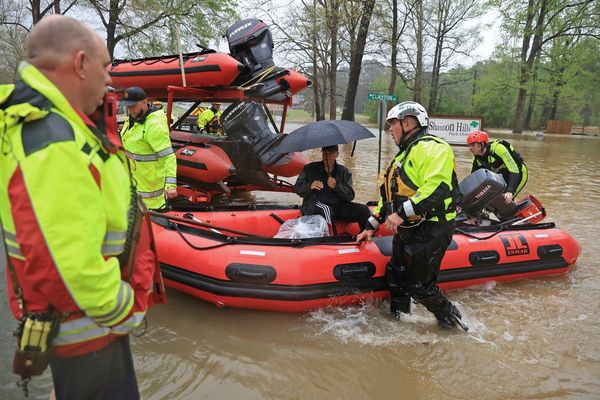Rishi Sunak has faced pressure over his five policy priorities during a sometimes tetchy interrogation from senior MPs, which saw him also accused of being an absentee prime minister who routinely skips parliamentary scrutiny.
In a 90-minute session before the liaison committee, where an initially blase-sounding Sunak appeared increasingly peevish, he dodged questions over whether he would meet his self-imposed targets over inflation and stopping small boat crossings.
A particularly turbulent late section saw him vigorously defend his plan to miss the next two prime minister’s questions, a timetable that Labour said would give him the lowest attendance record at weekly PMQs for any prime minister since 1979.
Chris Bryant, the Labour MP who chairs the privileges committee, pressed Sunak on his decision to miss Wednesday’s PMQs to attend an NHS event, a week before he will be at the Nato annual summit.
Bryant asked Sunak if he knew when a prime minister had last missed two sessions in a row. Sunak replied: “I don’t know, but what I think is important – is the honourable gentleman suggesting that I don’t attend the Nato summit, which I’m not being controlled on the dates of?”
In sometimes openly hostile exchanges with Bryant, Sunak sought to justify missing votes on potential punishments for Boris Johnson and the former minister Owen Paterson, and said he had not yet fully read last week’s six-page report on attacks on the privileges committee by a series of Conservative MPs and peers.
Other MPs on the committee, made up of select committee chairs, tried to pin down Sunak on the progress or otherwise of his five pledges, a set of policy targets he announced amid some fanfare in January.
The prime minister was notably vague on progress over the first of the pledges, to halve inflation during 2023. Challenged over whether this target would now be met, Sunak said he would “leave that to the forecasters”, while acknowledging it could prove difficult.
Questioned by Harriett Baldwin, chair of the Treasury select committee, Sunak said inflation was “proving more persistent than people anticipated” but insisted that did not mean his policy choices were “the wrong ones. Indeed, they’re the right ones.”
He told Baldwin: “We just need to continue to stick to the course and that’s not easy. That involves difficult decisions, but those are the right long-term decisions for the country.”
He was even more opaque over the pledge to stop asylum seekers and migrants crossing the Channel in small boats, refusing to say when this might happen or how many arrivals may be sent to Rwanda.
Under questioning from Diana Johnson, the Labour MP who chairs the home affairs committee, Sunak indicated that any progress depended on the supreme court approving the plan to deport asylum seekers to Rwanda, a scheme deemed unlawful by the court of appeal last week.
Sunak pointedly declined to say when he believed his “stop the boats” pledge might be met: “So obviously the court will have to determine its own ruling, and that is outside of the government’s hands. It’s the court that determines the timing, but in the meantime, we can get on with a range of other things.”
He also avoided Johnson’s question of where the more than 7,600 people who had crossed the Channel since the Rwanda policy became law would go, given Rwanda has said it can take 500 of them.
“I’m not going to talk about a private commercial contract that we have, but our Rwanda scheme, as we have said multiple times, is uncapped … which is why I believe it can act as a very helpful deterrent when the scheme is up and running,” he said.
The prime minister studiously avoided any comment on Boris Johnson’s resignation peerages.
Sunak told William Wragg, the Conservative MP who chairs the public administration and constitutional affairs committee, that he had followed constitutional convention by not amending the vetted list and had “no active involvement or engagement in that process”.
Asked about Liz Truss’s resignation honours, Sunak said her list had not yet reached his desk.







